 LOUISIANA DEPARTMENT OF ENVIRONMENTAL QUALITY | Secretary Courtney J. Burdette
LOUISIANA DEPARTMENT OF ENVIRONMENTAL QUALITY | Secretary Courtney J. Burdette
 A DEPARTMENT OF THE STATE OF LOUISIANA
A DEPARTMENT OF THE STATE OF LOUISIANA
A training class for sanitary wastewater compliance assistance.
Outlines LDEQ's commitment to improving water quality through partial or full restoration of water bodies within Louisiana. Includes regulations, management practices, status and trends, and targets for partial or full restoration.
A component of the Upper Mississippi River Restoration - Environmental Management Program. The mission of the Long Term Resource Monitoring Program is to support decision makers with the information and understanding needed to maintain the Upper Mississippi River System as a viable multiple-use large river ecosystem. Goals of the Long Term Resource Monitoring Program: Develop a better understanding of the ecology of the Upper Mississippi River System and its resource problems, Monitor resource change, Develop alternatives to better manage the Upper Mississippi River System, and Provide for the proper management of monitoring information.
Declares waters of the state of Louisiana are among the state's most important natural resources and their continued protection and safeguard is of vital concern to the citizens of this state. To insure the proper protection and maintenance of the state's waters, authorizes adoption of a system to control and regulate the discharge of waste materials, pollutants, and other substances into the waters of the state. Establishes surface water quality standards which will: 1. provide for the protection and preservation of the abundant natural resources of Louisiana's many and varied aquatic ecosystems; 2. protect the public health and welfare that might otherwise be threatened by degradation of water quality; 3. protect or enhance the quality of public waters for designated uses; and 4. serve the objectives of the Louisiana Water Control Law and the Clean Water Act. In particular for nutrients, LAC 33:IX.1109 and 1119 (Antidegradation Policy/Implementation, including reference to NPS BMPs) and LAC 33:IX.1113(B)(8) (narrative nutrient criteria).
Requires permits fro the discharge of pollutants from any point source into waters of the state. Applies only to facilities and discharges within the scope of the NPDES program. Establishes permit requirements and conditions for facilities including CAFOs
The Mississippi River Hydrodynamic and Delta Management (MRHDM) Study is the first large-scale, long-term restoration assessment investigated under the LCA Program. This study will identify and evaluate a combination of large-scale management and restoration features to address the long-term sustainability of the lower Mississippi River Deltaic Plain, as authorized under Section 7003 of the Water Resource Development Act (WRDA) 2007. The MRHDM study area covers the lower Mississippi River and surrounding deltaic regions. The hydrodynamic study effort will focus on the Mississippi River, while the delta management study effort will focus on the adjacent basins. This study area will be further defined as potential restoration opportunities are identified. Specifically, these modeling tools will be used to evaluate: hydraulics and the relationship of water flow conditions to sediment transport, salinities, deposition and erosion, and the net results of these processes on the river channel and its distributaries’ morphology. Ecosystem restoration features that maximize the deposition of Mississippi River sediment in coastal areas and aid in restoring delta growth and wetland sustainability will be identified and evaluated. Large-scale river diversions, dredging and outfall management measures will be considered.
The Louisiana Land Use Toolkit is an online resource for local jurisdictions. The Toolkit contains a model set of development regulations that can be used to help guide future growth and development in an sustainable and economically competitive manner. The Toolkit is a shared resource from which parishes and municipalities can adopt a complete development code or select cafeteria-style from individual tools that meet their specific needs. The Toolkit is intended to be used in two ways. At its simplest, the Toolkit is a standalone zoning or subdivision code, or a series of growth management tools that can be selected individually to meet specific needs. In its more complete form, the Toolkit can be combined and customized to build a complete development code. The following components make up the Louisiana Land Use Toolkit.
Association of Municipalities in Louisiana.